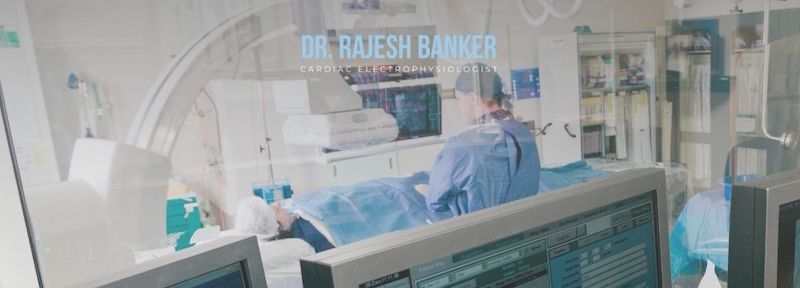Will I Feel Pain During a Cardiac Catheter Ablation?
November 30, 2021
When lifestyle changes and medication have not helped with the symptoms of Atrial Fibrillation or Afib, we may consider a curative procedure known as cardiac catheter ablation. Dr. Banker performs two kinds of ablations – RF catheter ablation, which uses targeted heat to destroy errant electrical signals and targeted cold therapy, known as cryoablation. Both procedures, while using different mechanisms for the ablation, are performed in a similar fashion.

During the procedure, you will receive a sedative. In some cases, you may receive general anesthesia. Either way, you will be very relaxed or completely asleep throughout the ablation. The only incision is made in the groin to access the femoral vein. So, Dr. Banker will numb this area to ensure that you feel no pain during the insertion of the catheter. The procedure takes anywhere from two to four hours, during which time you may feel pressure or mild discomfort in your chest. However, you shouldn’t expect significant pain at all.
After The Procedure
Many patients can go home on the same day of the procedure or after spending one night at the hospital for observation. During recovery, the sedative will be wearing off, but you still shouldn’t feel any significant discomfort.
Once discharged home, you may feel some aches and discomfort in your chest and at the incision site in your groin. You may also experience arrhythmias as the heart adapts to the course of the procedure. You will be given a post procedure packet that explains what signs to lookout for and when to call Dr. Banker.
The Bottom Line
Cardiac catheter ablation is a relatively straightforward and painless procedure. When compared to surgery of any kind, the discomfort that you will experience is far milder. When performed in ideal candidates, a cardiac catheter ablation can be over 90% effective which, in fact, eliminates what can be serious discomfort due to the arrhythmia itself. You will have the opportunity to ask Dr. Banker about any procedural concerns during your consultation. In the meantime, please contact our office so that we may schedule you in to learn more.


